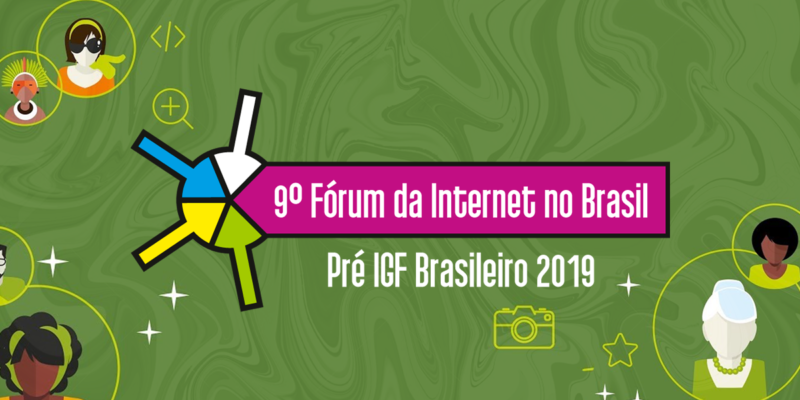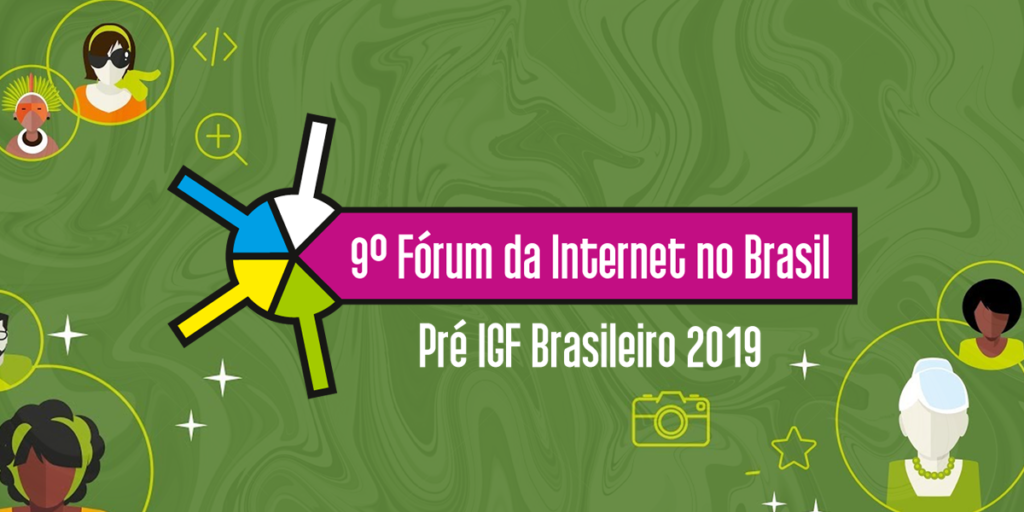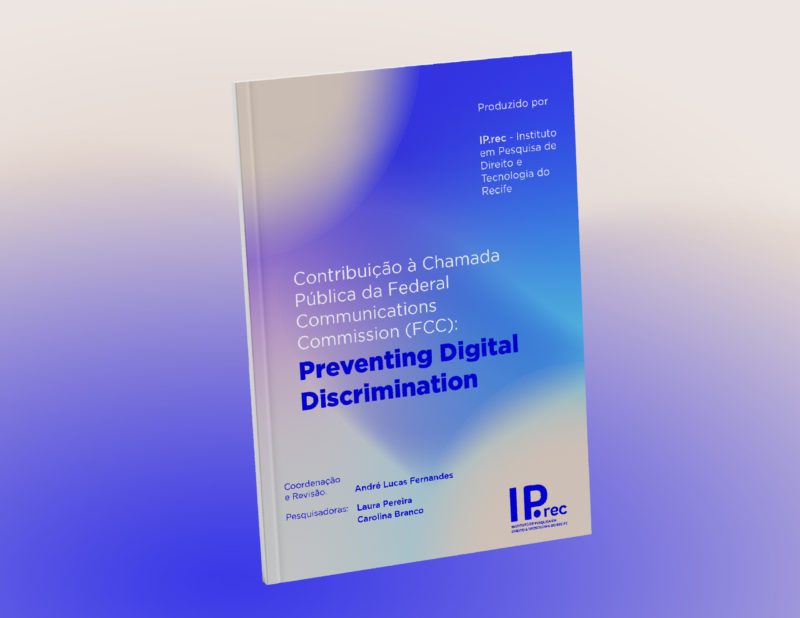 Blog
Blog

A review of IP.rec’s participation in the 9th Internet Forum in Brazil
Internet governance and multisectoralism Algorithms and artificial intelligence
Coalition for Rights on the Network: The advancement of digital surveillance and the criminalization of activism
IP.rec’s participation in the 9th Internet Forum in Brazil began right from the first session on the first day of the event, more commonly known as day 0. During the debate organized by the Coalition for Rights on the Network, which featured our researcher Mariana Canto, the topic discussed was related to the increasing number of surveillance techniques and mechanisms adopted in various municipalities and regions of the country.
The debate also focused on legislative projects under consideration in the National Congress aimed at changing the Brazilian Anti-Terrorism Law. Among the concerning proposals are measures that could potentially criminalize social movements and limit their activities.
Bill PL 272/2016, for example, aims to include in the list of terrorist acts actions such as arson and vandalism of public and private property when committed with the intention to intimidate or coerce governments or with “political and ideological” motivation, thereby increasing the risk of monitoring and persecution of social movements. The proposal also seeks to reintroduce the concept of “incitement to terrorism,” with increased penalties when the behavior is committed over the Internet. A practical example of the classification of this conduct would be the case of individuals who share a video on the Internet that involves the destruction of public property and praise or commend the act.
Other concerning bills that are being monitored by the institutions that form the Coalition for Rights on the Network seek to establish, for example, the transfer of powers, allowing the police themselves, rather than the judiciary, to request “internet service providers, content providers, and authors of communication applications” to take measures aimed at decrypting the content of a seized cell phone.
Throughout the debate, which was generated with great engagement from the audience present, it became clear that the risks not only involve individual guarantees or the stability of the private technology sector, but also government communications, which routinely make use of encryption protocols and would potentially be affected.
How much data to buy in the market? A debate on the protection of personal data in consumer relations
Link to session recording: https://youtu.be/fH3DO_g3IDM?t=7830
On the second day of the event, the workshop “How much data to buy in the market? A debate on the protection of personal data in consumer relations,” which featured our president Raquel Saraiva, aimed to discuss the regulatory context regarding data processing within the scope of consumer relations.
As is well known, the topic has gained relevance in the national scenario in recent years due to cases of investigation into the misuse of data by companies in various segments. Therefore, the panel aimed to demonstrate how the General Data Protection Law complements the Civil Rights Framework for the Internet and an already structured system of legal protection for consumers.
The audience’s interest was sparked by new discussions on the topic, as well as the presentation of practical challenges for different sectors regarding consumer obligations and rights in the context of Big Data.
During the discussion, Raquel drew attention to the use of data in the healthcare segment, emphasizing that the LGPD classifies health data as sensitive data, which therefore deserves greater protection from entities that process it. In addition, she sought to demonstrate how consumers are even more vulnerable in their legal relationship with companies in this sector, highlighting, for example, the abusive increases that occur without the consumer’s knowledge, and which are only explained by actuarial calculations that are obscure to most of them. Raquel also weighed the need for more effective and coordinated regulation of the sector among ANPD, ANVISA, and ANS, with the aim that data processing is done with greater protection of citizens. In the end, she emphasized the need for the immediate creation of ANPD, so that guidelines for the processing of sensitive personal data can be promptly defined.
Use of Facial Recognition in Public Policies: From Technique to Ethics.
Link to session recording: https://www.youtube.com/watch?v=BvNz-xwB3C8
The panel “Use of Facial Recognition in Public Policies: From Technique to Ethics”, proposed in partnership with CEPI, the Center for Teaching and Research in Innovation (CEPI) at FGV Law SP, reported by our intern Isabel Constant and moderated by our researcher Mariana Canto, aimed to raise a multi-sectoral discussion about the benefits and risks brought by the implementation of the technology already used in various cities across the country, often for public safety purposes during the organization of major events, such as Saint John’s festivities and street carnivals.
The presentation of reflections on facial recognition technology initially moved between its use by the private sector, through the explanations of José Guerrero (Co-founder of FullFace Solutions), its implementation in the public sphere that was presented through a case of São João de Campina Grande by the military police officer Jimmy Felipe, and the considerations related to issues linked to the right to privacy of Brazilian citizens by the scientific community and the third sector, presented by Ana Paula Camelo (CEPI/FGV-SP) and Diogo Moyses (IDEC).
Issues such as the technical construction of facial recognition technology, the transparency of its database, and, primarily, the problematic “public security versus privacy” were widely debated during the session. Together with the panel’s propositions, participants of the 9th Internet Forum in Brazil had the opportunity to contribute with personal perspectives and experiences on the topic, which was the main objective of the panel.
Amidst a highly engaged debate between the Panel members and the audience, the workshop resulted in the promotion of reflection on the use and regulation of facial recognition technology, its impact on existing public policies, and the assurance and guarantee of the fundamental rights of citizens – reflections that even exceeded the physical space and duration of the panel and Forum itself.
Women who “hack” the digital system
Link to session recording: https://youtu.be/pQs3s8QlF70?t=7973
The panel “Women who hack the digital system” sought to showcase the strength of women in environments that are still segregationist in terms of gender and racial equality, not only in the scenario of Internet governance but also in technologies in general.
Through the sharing of personal experiences, projects, and initiatives, the women present at the table, including our president Raquel Saraiva, spoke a little about their personal journeys and experiences and how they managed, and continue to strive, to hack a misogynistic and paternalistic system, re-signifying experiences.
In the first part of her speech, Raquel drew attention to women who, throughout history, have been at the forefront of technological inventions and discoveries that have changed the world. Then, she presented to everyone present the project Cintia: a group of women from CIn-UFPE, created with the aim of being a support network for all women who are part of the Computer Science Center of the Federal University of Pernambuco. In addition to organizing various actions and events, Cintia also aims to encourage female participation in the areas of science, technology, and computing, promoting actions to attract more women to these areas through mentoring and sponsorship.
Multisectoralism in the fifth wave of internet history: new perspectives and practices
Link to session recording: https://youtu.be/2aoEUU5blnc?t=7857
The last and no less important panel proposed by IP.rec at the 9th Internet Forum in Brazil, entitled “Multisectoralism in the fifth wave of internet history: new perspectives and practices”, dealt with the scenario that involves the new multisectoral practices from practical perspectives represented by various sectors.
The objective was to establish a theoretical contribution on the topic, addressing its historical and conceptual aspects and, from there, focus on “sectoral multisectoralism” to understand the application of multisectoral practices in themes such as cybersecurity standards, gender issues, automation, among others, which, due to their complexity, require greater concern to effectively implement the idea of representativeness.
The panel came at an opportune time, one day after the main session on Digital Cooperation, influenced by the recent High-Level Panel on Digital Cooperation of the UN, which, in addition to proposing recommendations to the model of the Global Forum on Internet Governance (IGF), brought up points on techniques of “multisectoral systems” for cooperation and regulation in the digital sphere. Recently, IP.rec also contributed to the public consultation on the panel proposed by the IGF.
During the panel, which was moderated by our researcher Tassiana Bezerra and included the participation of our researcher Paula Corte Real as a representative of the scientific and technological community, discussions were held on how the evolution of the Internet contributed to the evolution of the multisectoral technique, evaluating whether there has been a change in the concept, in the multisectoral canon, since its introduction in the ecosystem of Internet Governance in 2003 and 2005 with the World Summit on the Information Society. Also contributing to the debate was Luana Lund, representing the Government Sector and bringing her experience within the national multisectoral context. Journalist Hemannuel Veras, highlighting the difficulties of the practical experience of the third sector and organized civil society, and Pollyanna Rigon representing the technical community and the private sector.
Our thanks to everyone.
After days of intense debates, IP.rec believes that the exchanges and learnings that resulted from its participation in the 9th Internet Forum in Brazil make the balance of our review quite positive.
We would like to thank the debaters present at our panels who accepted to be part of such rich and necessary moments of exchange for the development of technologies in the Brazilian scenario, as well as CGI.br, the local government, and the entire technical and support team behind the event that made everything run smoothly.
We also thank you and hope that everyone present in the audience, remotely or in person, also had unique and enriching experiences. See you in 2020!

